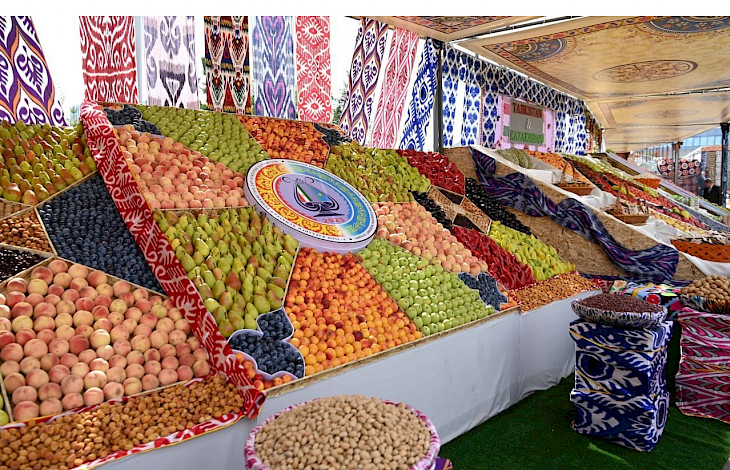Tajikistan has emerged as a leader in organic farming in the CIS. Agricultural produce grown in Tajikistan is considered the cleanest from an ecological perspective among CIS countries, Asiaplus.tj reports.
According to FAO data, 1.4% of cultivated land in Tajikistan is dedicated to organic farming, while in other regional countries, except for Moldova, this figure is less than 1%.
Moldova utilizes 1.3% of its cultivated land for organic farming, with other countries showing even lower percentages: Azerbaijan - 0.8%, Ukraine - 0.6%, Kyrgyzstan - 0.3%, Georgia - 0.2%, Russia and Belarus - 0.1% each, Kazakhstan - 0.05%, Armenia - 0.04%, Uzbekistan - 0.01%.
Organic agriculture is practiced in 188 countries, with over 96 million hectares of agricultural land being organically managed by at least 4.5 million farmers.
Organic farming entails the abandonment of chemicals in favor of natural products in agricultural production.
The 25th edition of the "World of Organic Agriculture," published by the Research Institute of Organic Agriculture FiBL and IFOAM - Organics International, offers a comprehensive overview of recent events in global organic farming.
It provides detailed statistical data on organic agriculture, covering areas under organic management, land use and agricultural crops, numbers of farms and other types of operators, retail sales, and international trade data.
In Tajikistan, organic farming originated in 2008 with the cultivation of organic cotton in the northern part of the country under the Swiss Development Organization's project "Helvetas."
The proportion of land under organic production in the total area of agricultural land in the republic increased from 0.07% in 2008 to 1.4% in 2023.
The main organic crops cultivated include cotton, alfalfa, apricots, peanuts, corn, wheat, and tomatoes.
When cultivating these crops using organic methods, an average of 30% less energy is used, more water is retained in the soil, erosion is reduced, soil quality is maintained, and more biological resources are preserved compared to traditional farming methods.
The only drawback of organic farming is the higher cost of products labeled 'organic.' Nevertheless, many consumers are willing to pay more for healthy and high-quality food products.
CentralasianLIGHT.org
June 6, 2024

